|
Yesterday's action at the Senedd, while not leading to the Welsh Government immediately instituting a moratorium on all future IPU development, was we think a great success. Lots of activists and groups from across Wales joined us on the Senedd steps for a lively and colourful demonstration while SFK members went into the Senedd for pre-arranged meetings with MSs from across the political spectrum. A more detailed report on the day and how we intend to build on the momentum created is to follow but in the meantime here are some photos of the event and some of the people involved.
0 Comments
SFK has not been idle recently: we've been in contact with like-minded groups around Wales with the aim of organising a day of action at the Senedd in Cardiff on February 15th. We hope to highlight and engage with as many Senedd Members as possible on four key demands, outlined below.
Despite The Welsh Government’s declaration of a Climate Emergency, and legislation such as the Wellbeing of Future Generations and the Environment Wales Act, farmers and growers are not getting the incentives and support needed to turn our food system around from being a producer of emissions and pollution, to one that actively reduces emissions, increases biodiversity, and supports farmers to produce healthy food that does not cost the earth. These are the issues that we are especially concerned about: 1. Planning law regarding agriculture does not make it possible for local councils to take climate change seriously when considering applications. A particular instance of this is the situation with the proliferation of Intensive Poultry Units (IPUs). We think planning rules need to be altered, in order to include climate change as a factor affecting decisions. We also feel the urgent need for the government to impose a moratorium on all new IPUs, in order to ascertain what effects they are having on our rivers, soil and biodiversity. We are not clear why the government has not been able to act on this so far. 2. Currently, intensively-reared chickens are fed on imported GM soya. Soya grown for export is decimating biodiversity and local communities in South America. This does not fit with Wales’s commitment to global responsibility as outlined in the Wellbeing of Future Generations Act. There must be alternatives. 3. Natural Resources Wales does not have sufficient funding to recruit adequate staff to effectively carry out its role of monitoring compliance with existing regulations regarding nitrates and phosphates. But the campaign about the River Wye, and water pollution in general, has highlighted the urgent need to enforce strict controls to ensure that our rivers are clean and full of life. Surely the funding can be found to enable this? 4. Currently a bill to legalise GM crops and food is making its way through Parliament. If the bill is passed, Wales will not be able to stop unlabelled GM produce coming over the border, and farmers and growers near the border will be very vulnerable to cross contamination of crops. Wales is a devolved nation; we feel that the Welsh government has the right to stand up to Westminster and refuse to allow these products into the country. With the climate heating more and more and biodiversity continuing to crash time is running out. We cannot afford to wait for more years to pass without real change. We are asking as many MSs as possible whether they are willing to 1. Meet us, or some of us, either outside the Senedd, or in the cafe on February 15th 2. Put questions to the government about our concerns either on or before February15th 3. Give a talk to people gathered outside on the 15th February addressing these concerns and how we can get the government to act 4. Talk to colleagues in the Senedd about how everyone can work cross-party on these issues We invite as many supporters as possible to join us on Feb 15th between 11am and 3pm outside the Senedd to show our MSs our commitment on the 4 demands above. Please pass on this information to any friends who may be supportive. The Campaign for the Protection of Rural Wales invites you to join expert panelists to explore the challenges we face as Wales moves towards a more sustainable and resilient food and farming system that works with, and for, nature.
Sunday October 16 at Knighton Community Centre, Bowling Green Lane (1.30pm doors open; 2pm start; 6pm finish). The afternoon will take the form of a series of panel discussions - involving farmers/growers as well as policy makers and campaigning groups - with plenty of opportunity to ask questions. Panellists include Patrick Holden from the Sustainable Food Trust, Welsh Government on their Sustainable Farming Scheme and Peter Fox MS on his new Food Bill for Wales. Tickets are £5 or £3 for concessions (farmers/food producers/under 30s) in advance £6 and £4 on the door: welshfoodandfarming.eventbrite.co.uk Come along to hear from our farmers and growers about the changes they are making in the face of rising commodity prices and the climate emergency. What does sustainability mean in practice? And how can policy-makers and consumers support them as we make the transition towards a more sustainable food production system? Also, importantly, how can we ensure that high-quality food is affordable? Tickets are also available on the door – £6 and £4 for concessions. There is plenty of parking at the venue. Sustainable Food Knighton (SFK) has not been idle during 2022. The group has been working on a new initiative, as part of the general campaign for a more sustainable, fair and healthy food production system in Wales.
SFK originally came together to oppose a local planning application for an IPU (Intensive Poultry Unit) on the edge of Knighton, in Powys. As you will be aware, after a long campaign, including a successful Judicial Review of the original application, Powys Country approved a revised planning application. Looking to the future, the group has decided that we now need to focus on engaging with members of the Senedd and Welsh government, as trying to fight local IPUs, case by case, is costly, exhausting, and potentially divisive in a small community. But other small and under resourced groups continue to wage local campaigns opposing new applications out of desperation; they feel, like us, that no-one is listening to their concerns. We consider all intensive farming to be in contravention of the Welsh government’s own laws on increasing biodiversity and taking action on climate change, and the Well-being of Future Generations Act. We feel the need for a broader campaign to localise Welsh food production that ensures healthy, nutritious food is affordable for all, and provides adequate livelihoods for the growers and farmers. We have focused on three main points which we would like to pursue with the Welsh government and Senedd, and that we would like to be included in policy decisions. 1. A ban on the use of imported soya in Welsh animal feed. The provision of Welsh Government support for farmers to produce appropriate local feed, or adopt methods of animal husbandry that do not rely on additional feed. By using imported soya, Welsh farmers are inadvertently contributing to deforestation and community displacement in South America. Reducing travel miles and becoming more self-reliant will also reduce our carbon footprint. 2. A halt to the inappropriate selling of farmland for afforestation projects. An end to all incentives and support for the growing of crops for biofuels. Provision of assistance and support to farmers to pursue models of mixed farming and make regenerative farming the norm. Support for organic horticulturalists providing local fresh fruit and vegetables. Farmers are being pressurised to sell off their land to large companies seeking to profit from the notorious trade in carbon offsetting - a false solution to climate change. Growing biofuels is a misuse of land needed for food production. Small mixed farms, woodland pasture where animals can graze in between trees, mob grazing, and nature-friendly practices should all be supported. More land should be used to grow fruit, nuts and vegetables for direct human consumption and to improve biodiversity. 3. An immediate moratorium on all new IPUs. Until the government declares a moratorium, it will be impossible to establish how much the contamination of local rivers and shocking decline of biodiversity is caused by nitrates and phosphates resulting from intensive chicken production. In order to find out why, a moratorium must be declared as a matter of urgency so that appropriate action can be taken. We plan to visit the Senedd in the new year to engage directly with MSs (Members of Senedd), and also be a colourful outdoor presence, raising awareness of the need to hold the government to account on its promises to de-intensify farming and support farmers and food producers to adopt regenerative practices while producing healthy, affordable food. We could have short talks or workshops, and maybe a mini People’s Assembly. With this in mind, we would like to engage with as many different groups and individuals as possible who share our aims and concerns and are opposed to industrial farming. Links have, for example, already been established with such groups as Nature Friendly Farming Network, Size of Wales and Our Food. We feel that the more diverse the gathering at the Senedd, the more effective it will be in challenging the government to take real action rather than just making bland statements. Supporters are asked to let us know if you would like to be part of this, even if you would not be able to come to the Senedd but have useful advice or contacts, or would be interested in other ways of re-modelling food production for the 21st century. Sustainable Food Knighton was asked to contribute to the Knighton Christmas Countdown, a daily "advent calendar" of activities and online offerings. We decided to contribute a video cookery demo featuring a tried and tested vegetarian nut terrine that would make a delicious non-meat Christmas Dinner centrepiece. For vegans the cheese in the recipe could be vegan cheese. Here's the video and also the recipe in full. Have a happy, safe Christmas! NUT TERRINE
Ingredients 1 large onion, finely chopped 3 sticks celery 1 leek, finely chopped (optional) 2tbsp oil 5-6 oz ((125-150g) chopped nuts of your choice but could include walnuts, hazel, almond, brazil, for example 2 tbsp fresh herbs such as thyme, marjoram and oregano or 2 tsp dried herbs such as thyme marjoram or mixed herbs 3oz (75g) grated cheddar cheese 4oz(100g) brown or white fresh bread crumbs 14oz (400g) chopped tomatoes, drained Salt and ground black pepper Method Pre-heat oven to 190C, Fan 170C or Gas mark 5 and line a 1lb loaf tin. Heat 1 tbsp oil in frying pan and gently fry the onion and leek if using along with the celery to soften but not brown. Add the chopped nuts and herbs and mix well. Heat carefully for a further 5 mins. Season well and take off the heat. Mix the breadcrumbs and cheese together in a dish and moisten with 1bsp oil. Press in a layer of breadcrumb mix into the loaf tin, then a layer of the nut mix followed by a layer of tomatoes. Repeat layers ending with a topping of breadcrumb mix. Press down well and bake for ¾ hour or until firm. Turn out onto a plate. Serve with tomato sauce or sauce of your choice. The issue of soya being used as feed in intensive poultry farming generates a fair amount of comment over on our Facebook page. In response, one of our members has written the following article.
More than 30 million tonnes of soya are imported into Europe every year purely for livestock from areas totalling around 18 million hectares across the Americas. Almost all this soya is genetically modified because 90–99 per cent of the soya cultivated in the main producing countries consists of GM varieties (GMO Compass, 2014). Globally, just under half of all animal feed made from soybeans and other oilseed crops is consumed by chicken and other poultry. Wales imports 190,000 tonnes of soy a year, mostly in the form of meal and beans for livestock feed. The average land area required overseas each year to produce Welsh soy imports is 94,600 hectares. This is equivalent to an area larger than Monmouthshire, or five times the size of Newport. GHG emissions from land use change, such as deforestation, for growing Welsh imports of soy total over 1.1 million tonnes of C02e each year. Only around 6 -9 per cent of soya beans are eaten directly by humans as whole beans or in soya products like tofu, soya milk and soya sauce. Soya oil is used as an ingredient in many processed, baked and fried foods and in other products (eg toiletries, cosmetics). Most of this soya is non-GM, if not organic The soya used for feed in IPUs comes mainly from Brazil, Argentina and Paraguay, where the most widely grown variety is Monsanto’s Round Up Ready transgenic. GM soya cultivation has been a disaster. Powerful multi-nationals buy up and privatise land for soya, which requires large quantities of herbicides and pesticides, frequently sprayed from aeroplanes. The impact of aerial sprayings of agrotoxins has poisoned local crops, animals, and people and forced many communities off their land and out of food production. The impacts on biodiversity have been calamitous: poisoned water courses and soil and destruction of ecosystems. Local people are given no warning of aerial spraying. In Brazil, over 36 million hectares are now used for growing GM crops, mainly soya, and Brazil is now the largest user of agrochemicals in the world. Currently, soy 'meal' is classed as a by-product, even though from 1 tonne of soy, you get 0.82 tonnes of soymeal and only 0.18 tonnes of soy oil. Palm is another cash crop that has been a disaster for rural communities in the exporting countries. For more info see: The Risky Business Cymru report recently published - https://www.wwf.org.uk/riskybusiness https://sizeofwales.org.uk/education/deforestation-free-nation/ The RSPB, Size of Wales and WWF Cymru have worked on this together and it specifically relates to Wales General: Greenpeace https://www.greenpeace.org.uk/challenges/soya/ https://www.efeca.com/wp-content/uploads/2019/12/UK-RT-on-Sustainable-Soya-APR-2019-final.pdf. There is much more information available if you search. It is an urgent issue. Wednesday's highly enjoyable "Veg Pledge" launch at the Knighton Football Club is behind us now but if you missed it you can still set yourself the "Veg Pledge" challenge - to give up meat for one or more days a week for 2 months. If you get in touch we can send you a "Veg Pledge" diary and answer any questions. And if you look around town in the windows of participating restaurants and cafés you can spot our "Veg Pledge Food Here" stickers. If you are short of ideas for tasty veggie and vegan meals to serve up at home, watch this page for recipes members of the group have found successful. Thanks to John Llewellyn-Roberts for a really inspiring bread making demo. That spelt loaf looked so easy and tasted so good! Thanks too go to The Banc and the Co-op for donating some really interesting vegan and vegetarian snacks. The majority of the snacks enjoyed on the day were of course cooked with love by SFK members and supporters. Thanks for the raffle prize donations, particularly the huge fruit and veg hamper from Mick and Alice at Rhos Organic Market Garden. And thanks finally to Knighton Football Club who were very accommodating and provided an ideal venue in their new outdoor seating area. We were delighted recently to announce that our action to have a Judicial Review of the decision by Powys County Council to give planning approval for a big Intensive Poultry Unit at Llanshay, just outside Knighton, had resulted in PCC conceding that the decision was faulted. PCC conceded on only one point, which concerned manure management, about which more below. Articles in the national press spread the good news and from the messages SFK received it is clear that groups and individuals opposing the development of similar intensive units took heart from our success.
Of course, we knew that the battle was unlikely to be over so quickly and that has proved to be the case. PCC announced in this week's Mid Wales Journal that the application has been resubmitted with adjustments to the plan to address the particular points that led to the original planning approval being overturned. SFK is preparing its response but we urge all who oppose - whether morally or environmentally - the further expansion of Powys as the intensive poultry capital of the UK to send in representations to the address given. THIS IS URGENT AS THE DEADLINE FOR SUCH SUBMISSIONS IS APRIL 26TH! SFK’s original objection was based on six areas, briefly summarised and updated as follows. 1. Climate change The Welsh government declared a climate emergency in 2019 and Powys County Council declared that it would take steps to address it. SFK argued that the proposed intensive poultry unit was in clear conflict with the aims of reducing carbon emissions, ensuring a sustainable farming industry and making Wales net zero by 2050. The bird feed is typically soya-based, with huge environmental implications for regions like the Amazon as well as the impact of shipping huge distances. Heavy vehicle traffic is part of the running of IPUs, not just because of feed but also the movement of the birds in and out and the movement of the tons of manure generated. 2. Manure Management It was initially proposed that the manure generated should be spread onto pasture, and it was on this objection that PCC conceded. The plan as resubmitted now proposes that manure be taken by road to a bio-digester 55 miles away over the border in Whitchurch. Needless to say, residents of Whitchurch have their own feelings about their role in the intensive farming industry – see https://www.whitchurchherald.co.uk/news/18476255.concerns-raised-whitchurch-biogas-plant-application/ for more. The applicant has also responded to new regulations regarding ammonia emissions by proposing to install “scrubbers” to remove the ammonia from the exhaust air, another technical fix involving fans operating day and night. 3. Landscape Impact It was argued that the impact of building an access road near a public bridleway had been ignored, and the full impact on the rural landscape – including the resulting smells, noise, damage to woodland and hedgerows, and contamination of springs and watercourses - had not been sufficiently evaluated. 4. Water supply It was argued that during periods of heavy rain there is a risk of phosphates running off from the fields where the manure is spread, and contaminating the Teme and that no assessment had been given for this. 5. Amenity/highway safety impacts on new residents As the applicant had already received planning permission from PCC for the erection of 103 dwellings on land about 500 metres from the proposed IPU, we argued that the impact of construction and maintenance of the IPU on the proposed residents of these dwellings needed consideration. 6. Cumulative Effects and risks to human health With a higher concentration of IPUs in Powys than anywhere else in Europe, studies of the cumulative impact on environment and human health are needed. SFK has real concerns about the risks of ammonia and other emissions to human and environmental health, in addition to which scientists have become increasingly aware in the last year of the potential dangers to human health posed by the zoonotic transmission of viruses from animals to humans in intensive farming contexts. SFK will be revisiting these objections in the days ahead as we consider our next move. We believe that the two technological fixes proposed by the applicant do nothing to address the real problem of the cumulative effects of IPUs, the resulting contributions to climate change and loss of biodiversity, and the increasing industrialisation of farming and its impact on local landscapes and communities. As many of you are aware the original planning application was decided under delegated powers by the Planning Officer. A request by our local County Councillor to call in the substantially amended re-application has been refused on the grounds that it should have been “called in” 21 days after the original application for it to be assessed by the full planning committee, unless substantially different information is brought to bear. We dispute this but as a result of the refusal the resubmission can only be put before full Planning Committee if the Head of Planning makes that decision. SFK takes the view that objections to the planning application would be far more likely to receive proper consideration in a democratic and transparent manner if put before the full planning committee. Another Judicial Review may be necessary if the re-submitted application is passed. However, we intend to do all we can to get it refused outright and our lawyers are committed to helping us achieve this outcome. But if we are to stand any chance of finally stopping this planned intensive poultry unit WE NEED AS MANY OBJECTIONS AS POSSIBLE TO BE LODGED BY THE APRIL 26TH DEADLINE. The application and associated documents can be viewed by going to http://pa.powys.gov.uk/online-applications/?lang=EN and looking for application number 19/0743/FUL. Submissions and objections should be emailed to [email protected] or posted to Planning Services, County Hall, Spa Road east, Llandrindod Wells, LD1 5LG. If you require any more information from SFK, please feel free to email [email protected]. Warm regards All at Sustainable Food Knighton The following, published Feb 5th by Planning quarterly, provides a clear summary of the Judicial review story.
Council permission for intensive chicken farm quashed following crowdfunded legal challenge 5 February 2021 by Conor McGlone and Gavin McEwan A consent order published by Cardiff Administrative Court on 2 March quashed the permission granted last September by Powys County Council for the erection of two poultry buildings and associated infrastructure at Llanshay Farm, Knighton. Powys has been dubbed the “poultry capital of Wales” due to the number of IPUs operating in the county. The case was brought by campaign group Sustainable Food Knighton (SFK), which argued that the council had not taken all environmental impacts arising from the development into account when granting permission, in particular those stemming from the need to spread manure on fields. The consent order said the council "accepts that there was no evidential basis for the officer's conclusion that the impacts on amenity from the proposed development would be acceptable because the fields were unlikely to be spread with manure from the proposed development more than twice per annum". A council spokesperson told Planning: "The council acknowledges receipt of the judicial review consent order and will enact upon the order which has quashed the planning decision granted in September 2020. "It will be necessary for the planning matters identified in the consent order to be addressed and re-considered as part of the re-determination of the planning application." An SFK spokesperson said: “Although the application can still be reopened, the particular point conceded will have to be addressed along with, potentially, other grounds for objection that the group highlighted." These include the impact on landscape, water and soil health, biodiversity and human health, and also the cumulative impact of the hundreds of other IPUs now in Powys. Last year, Welsh government agency Natural Resources Wales said it would conduct a “detailed review” after algal blooms turned the river Wye green and resulted in significant damage to its biodiversity. The group's recent success opposing the spread of intensive poultry units in Mid Wales has been highlighted in a new article published by Sentient Media, a non-profit journalism organization that seeks to create transparency around the role of animals in our daily lives, from food to companionship to laboratory test subjects. To read the full article, follow the link: Factory Farming Is on the Rise, but Communities Are Fighting Back (sentientmedia.org)
|

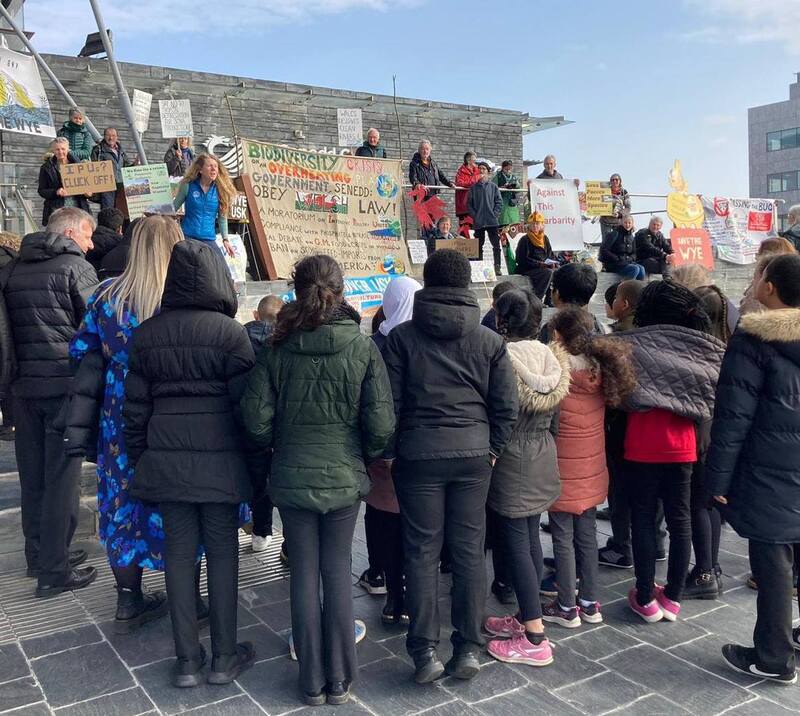
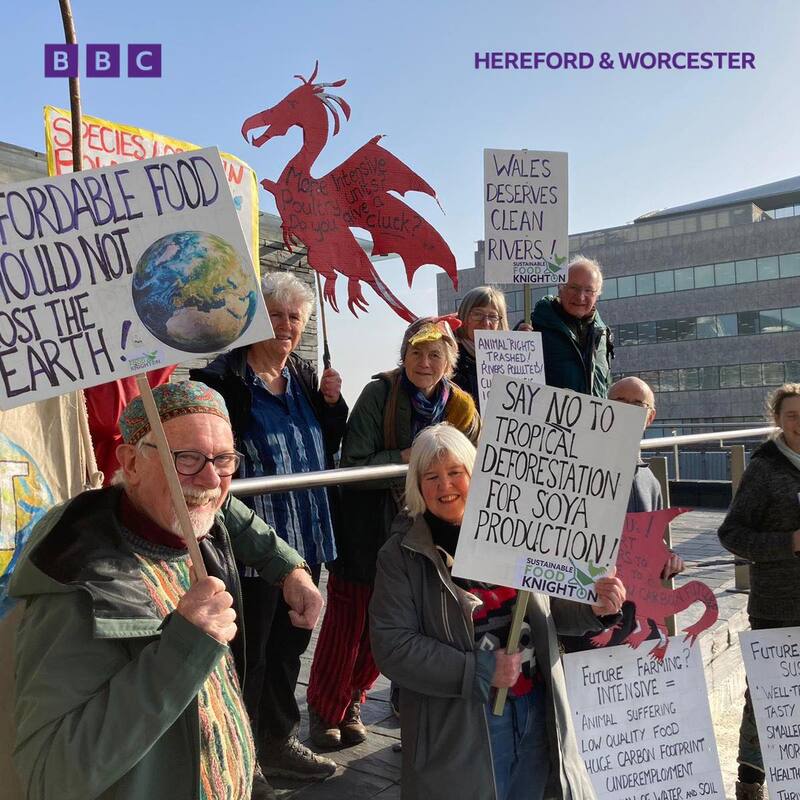
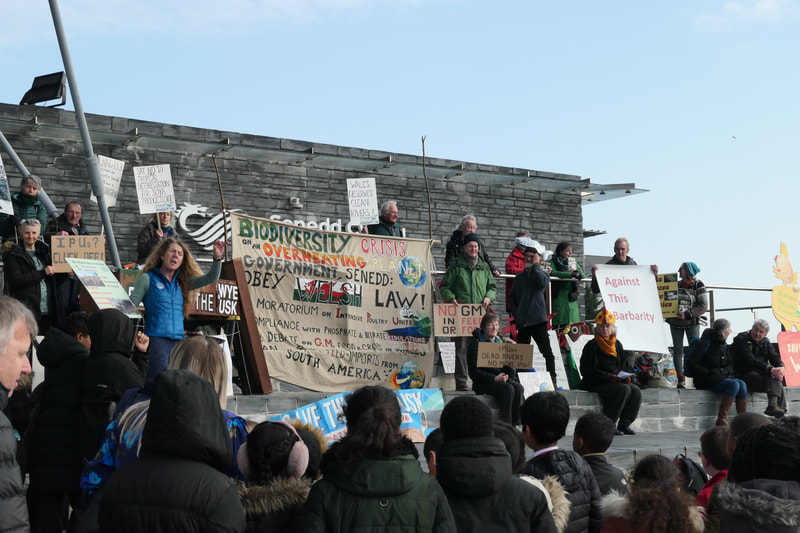
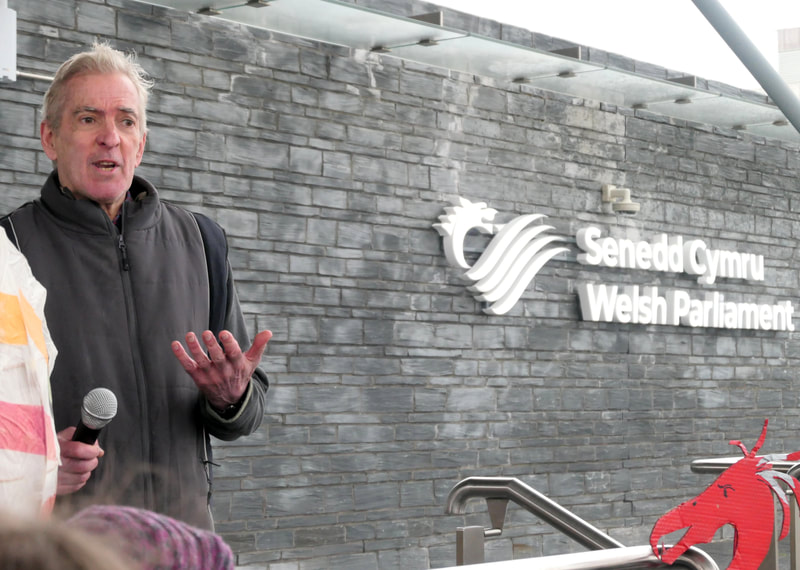
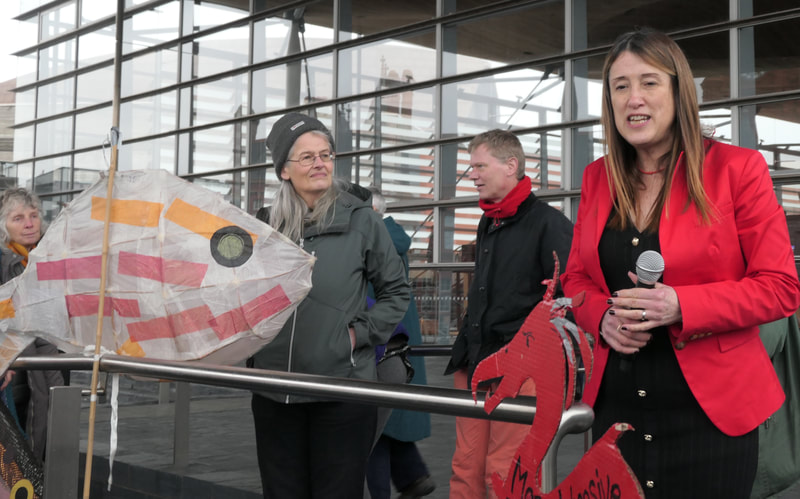
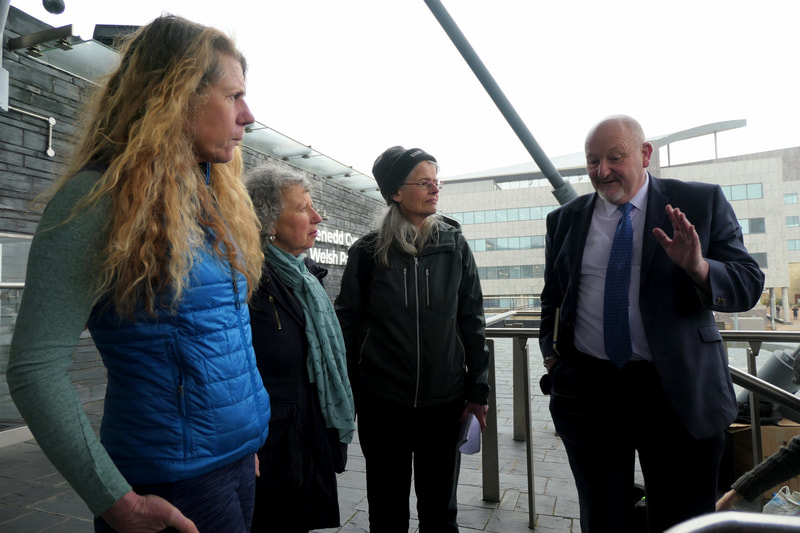
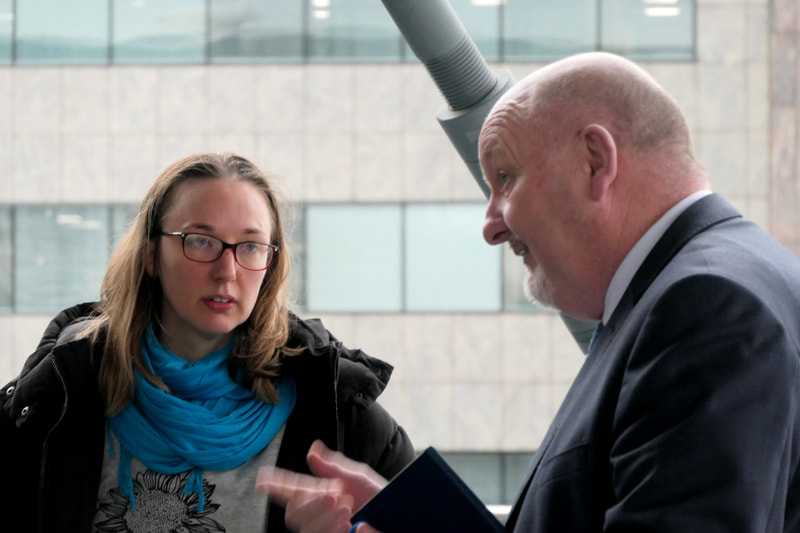
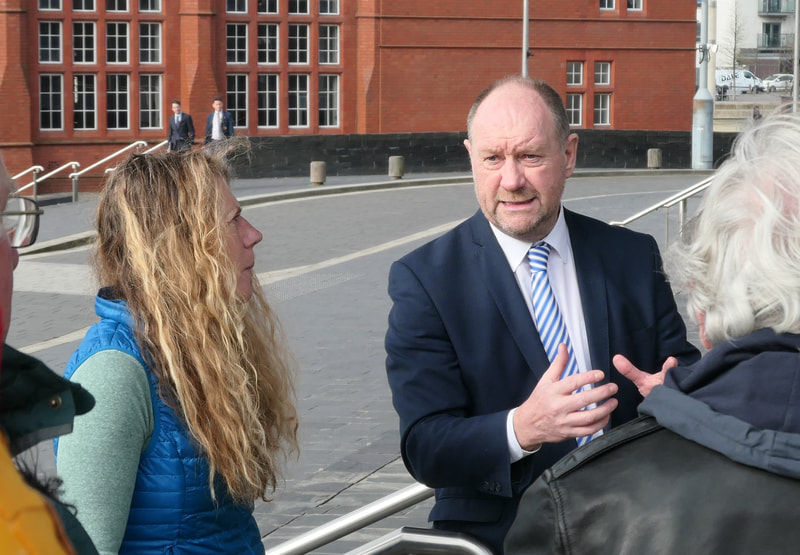
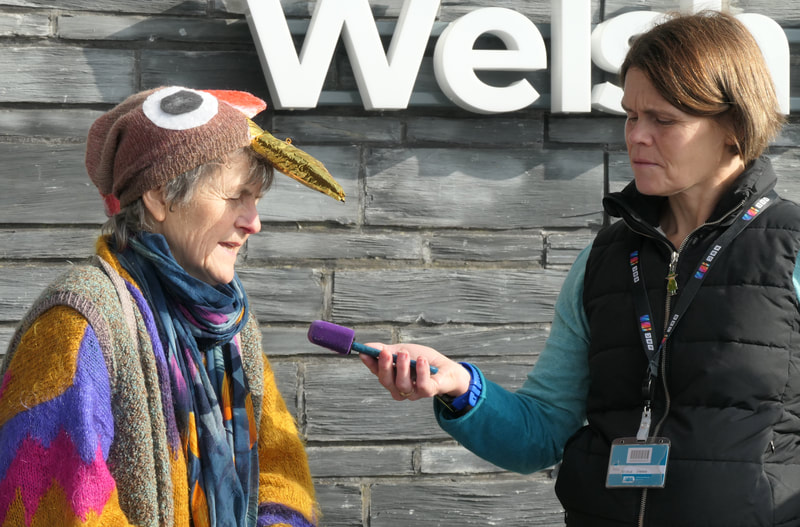
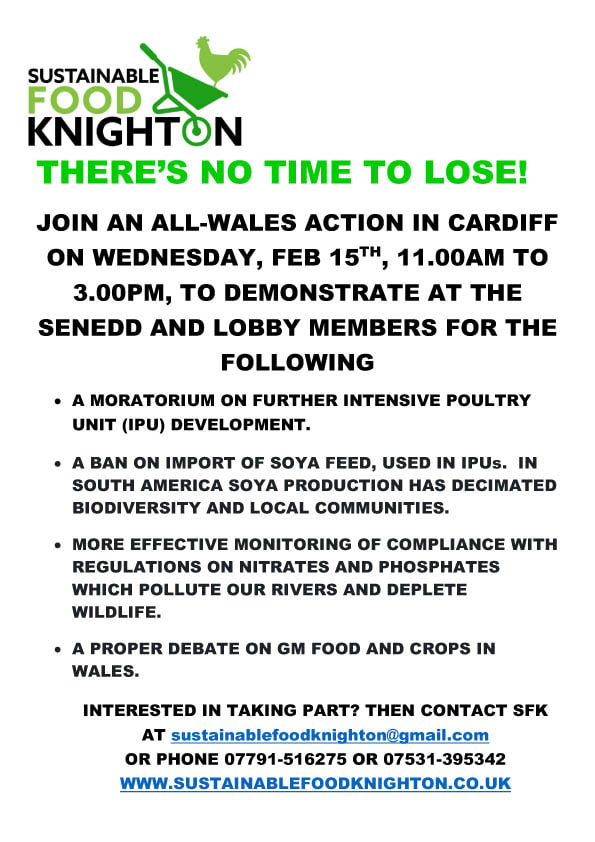
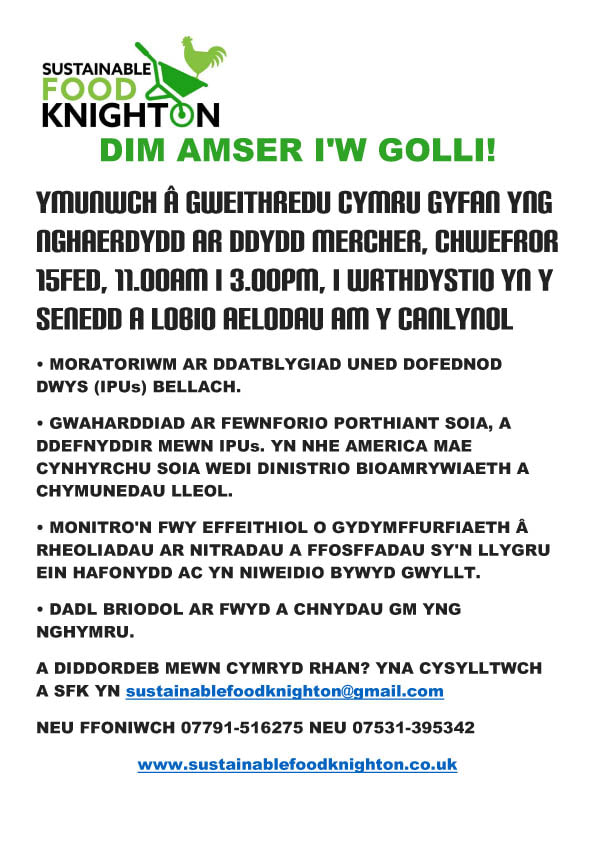
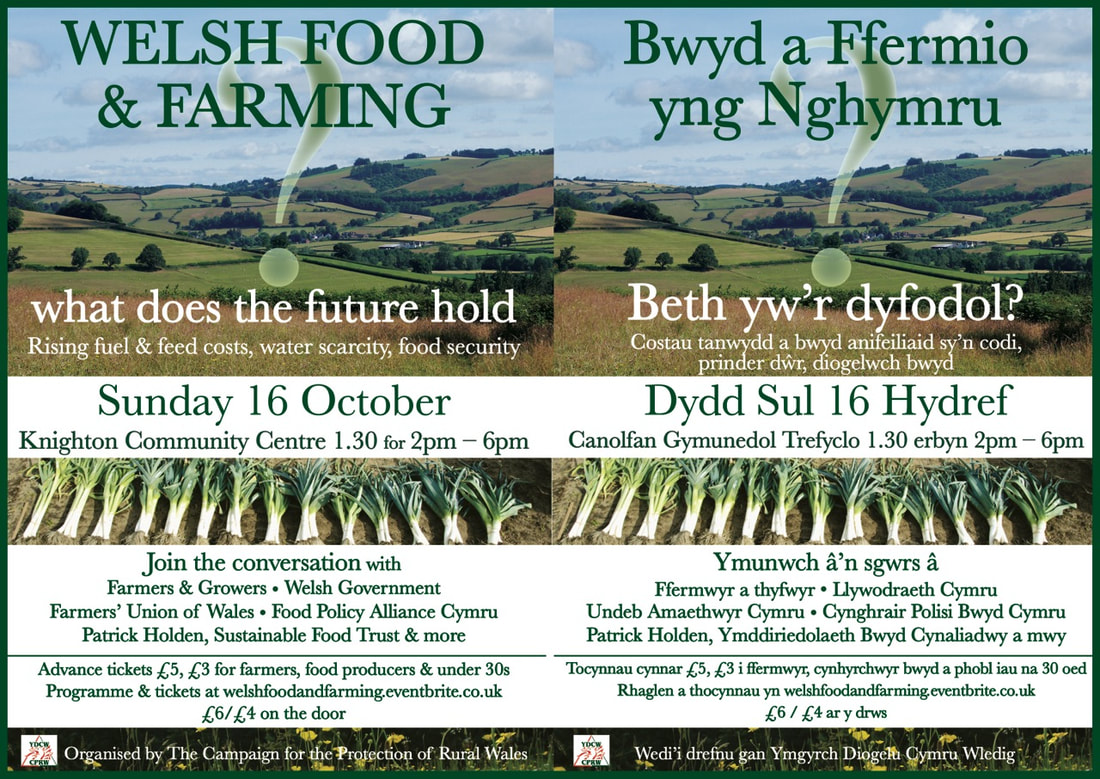
 RSS Feed
RSS Feed
